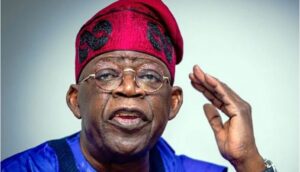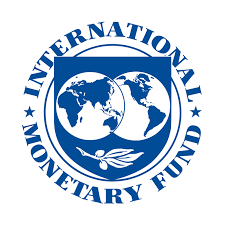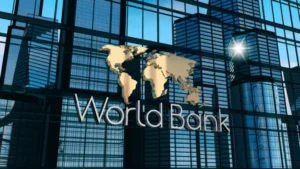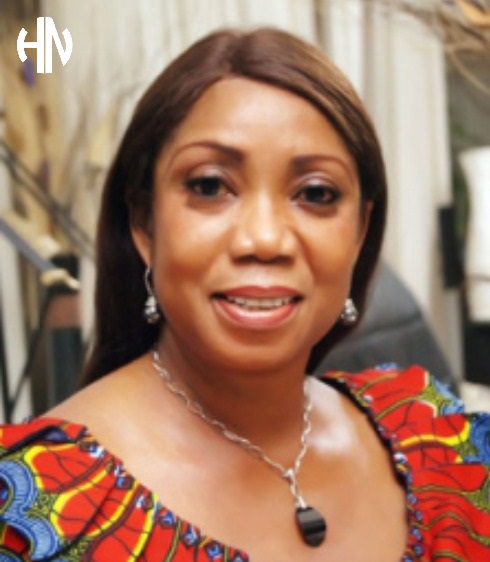By Princess Gloria Adebajo-Fraser MFR.
Governance Consultant, Public Analyst.
The National Patriots
October 2025
When President Bola Ahmed Tinubu assumed office in May 2023, he inherited an economy teetering on the edge. The fuel subsidy had become a black hole, the naira was distorted by multiple exchange rates, and government debt was ballooning. To avert total collapse, his administration turned to sweeping reforms — many shaped by World Bank and International Monetary Fund (IMF) recommendations.

Two years later, the World Bank’s Nigeria Development Update claims the economy is “stabilizing,” yet 139 million Nigerians remain trapped in poverty. The Bank now laments that “citizens are not feeling the gains of reforms.” But for many Nigerians, this sounds less like empathy and more like hypocrisy. The hardship they feel was not an accident — it was engineered through policies crafted and enforced by these same institutions.

Reforms Born of Necessity
President Tinubu has consistently defended his administration’s economic overhaul as an unavoidable act of national rescue.
“Nigeria did not embark on these reforms out of luxury or pride — we did so out of necessity,”
said President Tinubu earlier this year.
“The old system was collapsing under its own weight. We had to remove the subsidy, unify the exchange rate, and restore fiscal sanity, or face national bankruptcy. It was a bitter choice, but the only responsible one. These sacrifices are the price we must pay today to secure a more stable and prosperous tomorrow for our children.”

That “bitter choice” has produced some undeniable macroeconomic progress. According to the World Bank, Nigeria’s debt-to-GDP ratio has dropped to 39.8%, the first decline in a decade. Foreign reserves have climbed above $42 billion, the fiscal deficit is narrowing, and GDP grew 3.9% year-on-year in the first half of 2025.
IMF Mission Chief Axel Schimmelpfennig praised these achievements, noting that Nigeria “removed costly fuel subsidies and improved the functioning of the foreign-exchange market.” World Bank Country Director Mathew Verghis echoed the sentiment, calling them “bold steps that are beginning to yield results.”
But beneath the applause lies an uncomfortable truth — these reforms were not freely chosen. They were dictated by loan conditionalities that prioritized debt repayment and fiscal restraint over social protection.
Strings Attached: Conditionality and the Cost of Compliance
When Nigeria accepted new financial support, it also accepted strict limits: subsidy elimination, currency liberalization, higher taxes, and reduced government spending. The IMF calls these “program safeguards”, but to ordinary Nigerians, they are shackles.

In practice, these conditionalities meant fuel prices tripled overnight, food costs soared, and transportation became unaffordable. Small businesses faced declining sales as purchasing power collapsed.
“Food inflation is the biggest tax on the poor,”
admitted World Bank senior economist Samer Matta earlier this month — a rare moment of candor from an institution that helped create the problem.
The irony is painful: the same institutions that demanded subsidy removals now criticize Nigeria for its rising poverty.
As Princess Gloria Adebajo-Fraser, MFR of the National Patriots, bluntly put it:
“It is hypocritical for the World Bank and IMF to lament that Nigerians are not feeling the gains of the reforms when they imposed the very conditions that deepened this hardship. You cannot tighten the rope around a nation’s neck and then complain that it struggles to breathe. If these institutions truly want Nigeria to succeed, they must relax the conditionalities and allow the people room to recover. Development cannot be dictated through austerity; it must be built through fairness, patience, and humanity.”

Her words capture a growing national sentiment: Nigeria is reforming, but not on its own terms.
A Global Pattern of Pain
Nigeria’s struggle is far from unique. Across continents, nations that followed the same IMF–World Bank blueprint paid heavily in human suffering.
Argentina endured decades of austerity, privatization, and currency collapses under IMF programs — yet remains trapped in debt cycles and poverty.
Sri Lanka’s 2022 IMF deal imposed subsidy cuts and tax hikes that triggered 50% inflation and nationwide protests.
Zambia’s fiscal reforms won praise from lenders but shrank public investment so drastically that citizens saw little relief.
Ghana, once lauded for compliance, had its public-sector wage bill capped by IMF rules — halving its number of doctors in less than a decade.
These cases all prove the same point: macroeconomic stability does not equal social wellbeing.
The World Bank and IMF like to claim that short-term pain leads to long-term gain, but the evidence is mixed at best. Many of these countries never fully recovered. They stabilized on paper, but remained trapped in dependency and recurring debt renegotiations.
Who Owns Nigeria’s Poverty?
The 139 million Nigerians now living in poverty are not simply victims of local mismanagement — they are casualties of a global system that demands fiscal purity before human dignity.
The Bretton Woods institutions knew that removing subsidies and unifying the naira without safety nets would trigger hardship. Yet, they insisted on rapid implementation. Now they feign surprise that people are suffering.
This is not partnership; it is economic paternalism. The very reforms they celebrate were designed to protect creditors, not consumers.
If these institutions truly believe their own words about “inclusive growth,” they must match them with action — relax the loan conditions and renegotiate terms that suffocate the people they claim to help.
Can Nigeria Renegotiate? History Says Yes
Contrary to popular belief, renegotiation is not rebellion — it is routine.
Countries such as Pakistan, Zambia, and Argentina have all successfully renegotiated IMF programs, citing social distress or economic shocks.
Nigeria, as Africa’s largest economy and a key regional stabilizer, has leverage. It can request:
Extended repayment timelines,
Temporary fiscal flexibility for essential services,
Targeted exemptions for health, education, and food security spending.
The IMF and World Bank have already admitted that rigid austerity undermines social stability. Nigeria should hold them to their word.

Turning Pain into Progress
Renegotiation alone will not solve everything. Nigeria must use every available tool to protect its people while reforms mature:
1. Reinvest savings from subsidy removal directly into visible public goods — schools, clinics, roads.
2. Launch smart, time-bound subsidies for transport and agriculture to stabilize costs.
3. Tax fairly — close loopholes, expand property and wealth taxes, not burdens on traders.
4. Promote local production to create jobs and reduce import dependence.
5. Be transparent — citizens must see where every naira saved is being spent.
When people understand that sacrifice leads to shared gain, they can endure. But when pain feels endless and imposed, they revolt — and no economy thrives amid discontent.
Time to Be Honest
The reality is simple: Nigeria’s reforms were necessary, but the method was brutal. The World Bank and IMF cannot distance themselves from the consequences of their own prescriptions.
If 139 million people remain poor after following the so-called roadmap to recovery, the map itself is flawed.
The solution is not another lecture on “discipline” but a new deal — one that lets Nigeria breathe, rebuild, and design a recovery plan rooted in local realities, not foreign textbooks.
As Princess Gloria Adebajo-Fraser rightly said, “Development cannot be dictated through austerity.” It must be built through partnership, compassion, and common sense.
Until the Bretton Woods institutions learn that lesson, Nigeria — and much of the developing world — will continue to stabilize on paper while starving in reality.
Princess Gloria Adebajo-Fraser MFR.
The National Patriots.
Governance Consultant & Public Analyst.




